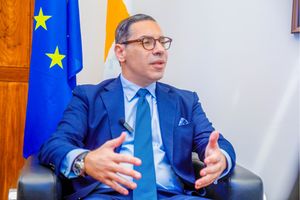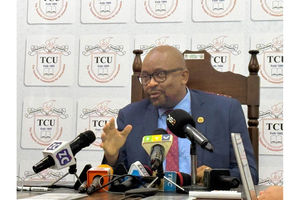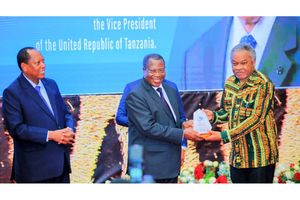Tanzania’s youth leader says EU-AU ministerial marked a turning point for youth governance
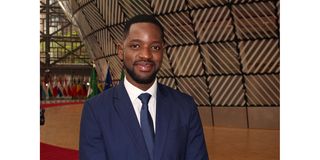
Youth Sounding Member to the European Union Delegation to Tanzania and the East African Community, Paul Siniga
What you need to know:
- Paul Siniga, who serves as a Youth Sounding Member to the European Union Delegation to Tanzania and the East African Community, played a leading role at the Ministerial where he documented the ministerial meeting through his influential social media and updated young people on diplomacy in action.
Dar es Salaam. Youth voices have often been sidelined in global policy discussions, but at the recent European Union–African Union Ministerial Meeting, Tanzanian youth leader Paul Siniga believes something shifted. He described the gathering as a moment where young people finally moved from the periphery to the policy centre.
Paul Siniga, who serves as a Youth Sounding Member to the European Union Delegation to Tanzania and the East African Community, played a leading role at the Ministerial where he documented the ministerial meeting through his influential social media and updated young people on diplomacy in action. Paul is also a Global Ambassador for the European Union External Action Service’s #OurVoiceOurFuture initiative and part of the EU-AU Youth Core Group.
“Youth participation ensures that development policies reflect the lived realities of the majority population on both continents,” said Paul Siniga. “Over 60 percent of Africa’s population is under 30. Our inclusion is not symbolic, it’s strategic.”
The 2025 Civil Society and Youth Declaration, developed ahead of the summit, addressed issues ranging from migration to green jobs. According to Paul Siniga, young delegates were not just passive observers but active contributors.
“My key takeaway is this – our voices moved from the margins to the mainstage,” said Paul Siniga. “From pre-meetings to the official Ministerial agenda, young people shaped the conversation.”
He noted that this time, youth recommendations were officially presented to ministers, including a call for a permanent AU-EU Youth and Civil Society Advisory Council, which he personally proposed. He described this development as “a significant shift” in how institutions are beginning to treat youth perspectives.
“It’s true that we are moving from tokenism to tangible inclusion – slowly but surely,” said Paul Siniga. “But until youth input is structurally integrated into policy cycles from planning to implementation, involvement will remain performative.”
Paul Siniga urged that youth ideas must be supported by frameworks that are backed by budgets and political accountability.
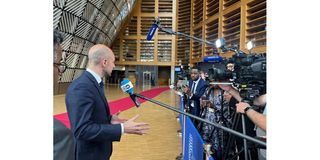
Paul interviews France’s Foreign Minister Jean-Noël Barrot on the sidelines of the Ministerial Meeting.
“Young people are somewhat tired of high-level rhetoric,” said Paul Siniga. “We want to see policy that meets practice. We want to see more youth-centred investments in education, climate innovation, mobility, and entrepreneurship.”
He emphasised the need for institutions to move beyond symbolic gestures and commit real resources to youth-driven action.
“I’d urge ministers to move from polished policy statements to bold political will,” said Paul Siniga. “Youth have the ideas, networks, and tools. What we lack is institutional trust and sustained support.”
He proposed investment in innovation hubs, youth-responsive strategies, and inclusive financing as ways to support the growing potential of African youth. His call came against the backdrop of youth unemployment, which he termed “a ticking time bomb.”
“The youth unemployment crisis is not just an economic issue, it’s a security one,” said Paul Siniga. “We must strengthen the links between education systems, labour markets, and innovation ecosystems.”
He also expressed concern about the shrinking civic space for young people across the continent.
“We must safeguard civic space,” said Paul Siniga. “Political repression, lack of youth representation, and threats to digital rights are growing and they silence the very voices we need to hear most.”
Beyond his high-level engagements, Paul Siniga is involved at the grassroots level through African Youth Transformation, a civic organisation that equips young people with tools for leadership, governance, and advocacy. He explained that his multiple roles are connected by a single purpose.
“I wear many hats, but they all share one mission – ensuring young people lead global change,” said Paul Siniga. “When we shape policy, we shape the future.”
His concluding thoughts were clear. The shift he witnessed was not just symbolic but a signal that youth participation is beginning to evolve into actual governance.
“This wasn’t youth engagement,” said Paul Siniga. “This was youth governance in action.”



